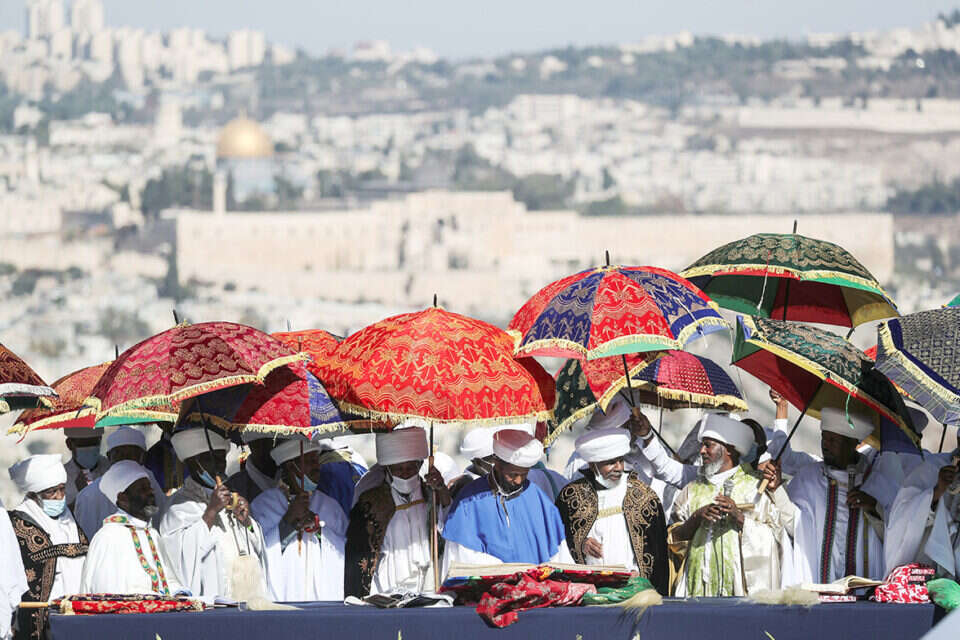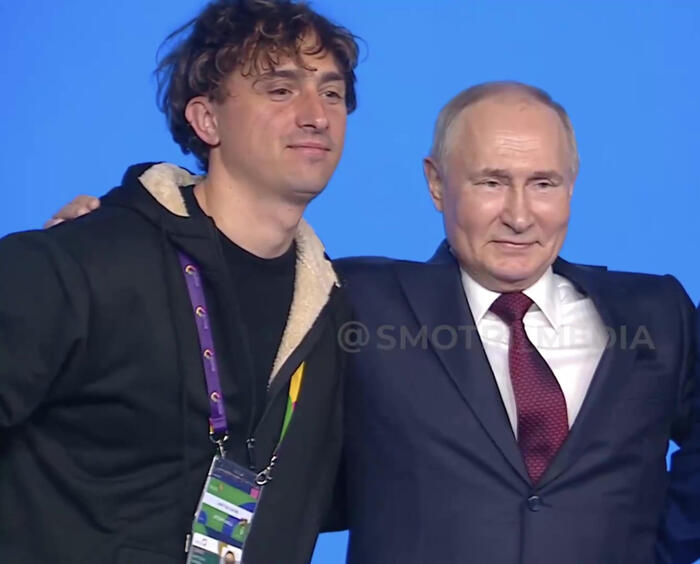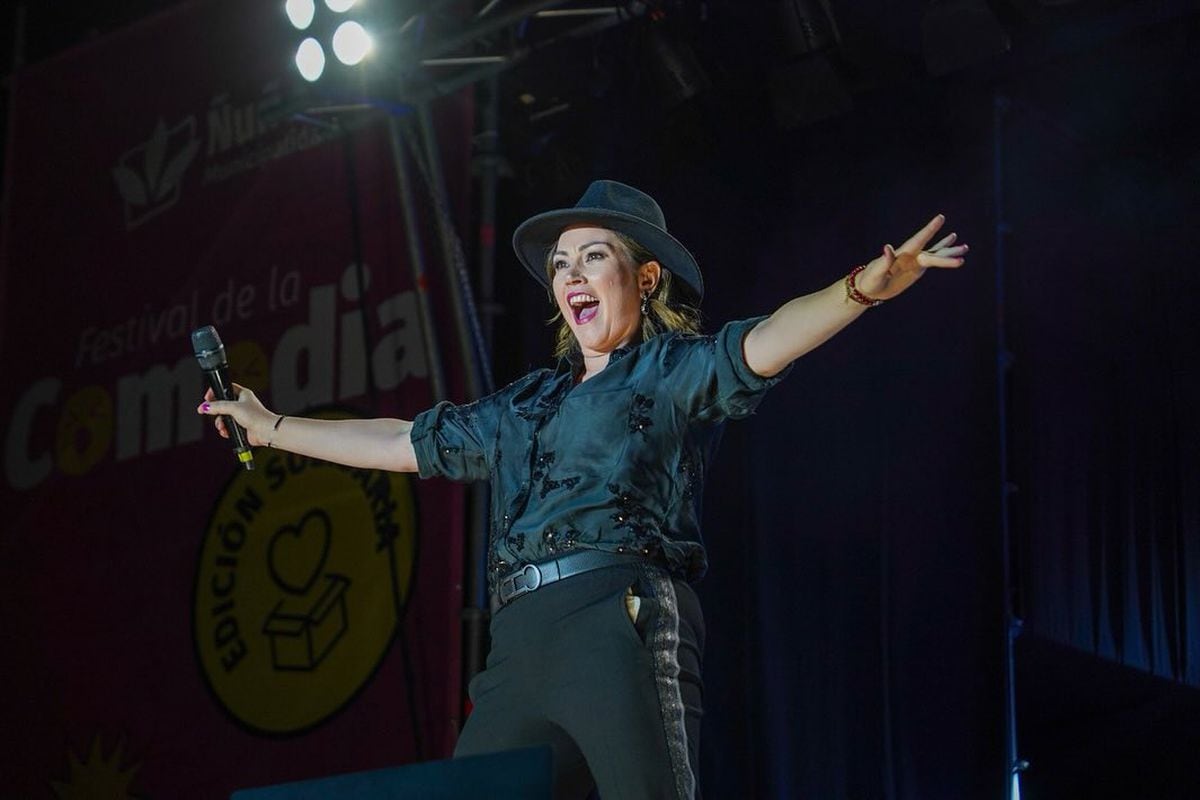The summer protest of 2011 will be forgotten by few who lived then.
The initial connotation that comes up, of which not much remains, is that of the Rothschild tents.
But few will remember that that summer was also the time of many more protests, on the part of populations who felt that more than they wanted to rent an apartment in Tel Aviv at reasonable prices - they wanted equal starting points.
There are those for whom that summer provided the nucleus of an idea, which developed into an annual tradition, perhaps more effective than conventional means of protest.
One such is Shay Pardo, a member of the Ethiopian community who immigrated to Israel in 1984 during Operation Moshe, and who in the summer of 11 years ago, while still 36 years old, decided to say: No more Mr. Nice Guy
"In the summer of the great protest, I set up a tent called the 'Nachamim protest', with huge quotation marks around the word 'Nachamim,'" he says.
"I said: You can call one nail polish nice and another not, but it doesn't matter, because as long as they don't get the rights they deserve - titles don't change anything. I would stand and lecture on issues of equal rights and giving opportunities to minority groups, tell about the journey to Israel, Organizer of evening shows and Ethiopian food. Little by little, more and more people joined, and our encampment became very large. When the protest ended, many of its people founded the Sustainable Restaurant, a cooperative restaurant in Florentine Tin. I did not enter into this venture, but I decided that I wanted to hold an event at The artists of the Ethiopian community to the general public. In a short time, the rumors spread from mouth to mouth and a lot of people came. It was crazy."
The number of people who came, which did not exceed the masses of Ethiopians, led Pardo (who used to be one of the founders of the first Ethiopian theater in the country) to turn the event into an annual festival, which would later be called the Siegdiada, and which is now in its 12th year. And it includes music, stand-up, dance and cinema shows, alongside fashion and an Ethiopian food fair.
The mosque ceremony at the Governor's Palace in Jerusalem, last year, photo: Oren Ben Hakon
"Following the festival, there are a lot of Ethiopian artists who created connections with mainstream artists and work in collaboration with them, for example Ehud Banai and creating a community, or the stand-up artist Shlomo Baby who performed with Tzvika Hadar. Now we have Alma Zohar, who I connected with Mimi Addiso, and together they innovate songs Ethiopian children whose mothers used to sing for us in Ethiopia and who were almost lost."
In recent years, you can see more prominent members of the sect in mainstream culture: Esther Rada, Teddy Ngusa, Yossi Vasa. Do you feel that there is really a significant change in the representation of the community?
"I suppose there is some improvement, but I cannot rely on a few examples that can be counted on ten fingers, to project the general feeling of the 150,000 expatriates of the Ethiopian community. Personally, my journey was the opposite: I played in the Herzliya, Bash and Beit Lisin theaters .
I mean, I worked in a repertory theater and dealt with classics - but I was lonely, because there were no Ethiopians in the audience and there were no other Ethiopian actors.
"I would ask family and friends why they don't come to the theater, and they would answer: 'If they included content related to where we come from, then we would come. But just to applaud the culture we live and study? We would like them to bring our culture in some form as well. '. So there is still a lot to fix and work on, the journey is not over yet. Today's racism is more hidden, and causes more damage to the community than brutal racism. Someone can throw a bad word at you for being black, and you will deal with it. It will hurt, you will be angry - but It will fade away."
"Everyone experiences racism"
"To know that we have integrated enough into society, I would like for once when we are interviewed not to be asked this question," says Barko Zero, 38, a stand-up artist who will perform in Besi Gediada, in a show in which a large part of it is devoted to the topic and which shatters racial stereotypes in Israeli society.
"In the end, I engage in stand-up and humor, and at the end of interviews I am asked about racism. There is no one from the Ethiopian community who has not experienced racism. Even those who tell you no - if they are not lying to you, then they are lying to themselves. Racism still exists, it simply changes the Her face. There's a section in my show where I talk about how whenever I'm at Supreme Rocket, people think I work there. Someone came up to me and didn't even ask me if I worked there, she straight up asked, 'What, isn't there celery?'"
Barco Zero, photo: public relations
So here is a stereotype that definitely needs to be shattered.
"When the media talk about Ethiopian society, it's usually not in positive contexts. Unless it's a holiday, then there's always the article 'the first Ethiopian to do something', as if an Ethiopian succeeding is a miracle. We're a happy community that loves humor, and it's a very important element in our lives. The purpose of my stand-up is to show that we are all the same, and that we all suffer from the same things. Through humor I can talk about this issue, and the audience will understand what I'm talking about, because in the end I'm reflecting themselves to them. Those who laugh at these echo bars probably know that there There is truth in them, and the truth is funnier than inventing a story that doesn't exist. My goal is to make not only Ethiopians, but all types of audiences, leave the evening smiling because they understood what I was talking about."
Pardo: "To build a better society, we need to get to know everyone around us. Get to know the heritage, touch, taste"
Zero: "We are a community that loves humor. My goal is to show that we are all the same - and that we all suffer from the same things"
Hezikias: "If I rely on whether it 'gets expression' or not, as an artist from the Ethiopian community I think I will miss out and deal with the problem"
Zvika Hezikias, photo: public relations
Not every performer at the festival places the issue of sectarianism at the forefront of his work.
Alongside Zero, whose work deals with the "Ethiopian experience" and the dynamics of the ex-community with Israeli society, the dance show "Tarab", by Jerusalem Dance Academy graduate Zvika Hezikias together with Shiri Kvantz, deals with a relationship with its ups and downs.
Sons of God to many others - before he considers himself an Ethiopian, Hezekiah defines himself as a dancer, choreographer and creator.
For him there is no reason, at least at the moment, to deal directly with matters of testimony.
"I accumulate everything"
"I've never bothered with this issue, whether I fit into the company or not. I don't think there should be an emphasis on it at all," he says.
"I make my art, and whoever wants to - let them see it, and whoever doesn't - welcome. I've lived here for 38 years, as far as I'm concerned, I'm a Sabar (Hezekiah immigrated to Israel in 1984 at the age of two, ref.) and an Israeli to all intents and purposes.
If I start to rely on whether it 'gets expression' or not, as an artist from the Ethiopian community I think I will miss out and deal with the problem, and the main thing in my eyes is the art.
"I deal with dance, it's my specialty. There are those who deal with it, but I think it's unnecessary and that the energy can be invested in the thing itself. There are social activists who deal with us, the Ethiopian sha. They define themselves as part of this discourse of the victim, or whatever you call it. But as far as I'm concerned - you choose how to look at my art, it's yours. I do my thing and move on, not concerned with the visibility of it. I believe in art without identity. Your art is identity itself."
Shay Pardo, photo: public relations
Other interviewees in this sect will come and say - whether you like it or not, this is a part of you.
"If I didn't do something good, they wouldn't contact me. Contact a Zvika who danced - not a Zvika of Ethiopian origin. I'm not there. In my show, 'Tarab,' there are moments that are not easy to see. The music in it is very moving, it's chilling for you The heart, there is a crazy rhythm. I create from a connection to the movement, without anything to do with the cultural interest."
Do you think the sectarian interest will find its way into your work? At some point in life, returning to sources or acknowledging them is a matter that happens naturally.
"For me, the cultural interest is the food, the music, the conversation in Amharic. I do think in the future to make a dance work that talks about the path we took and the aliya. In the past I danced traditional dances and I connected with it. There are processes you have to go through with yourself, as you see I have not gone through them to this day" .
The one who went through the process is the singer Tamar Reda, whose new show, "Arteva", which is partly in Amharic and partly in Hebrew, she dedicates to her father.
At home, like an average teenager, she saw no need to deal with matters of origin and define herself on the basis of sect.
But at the age of 35, she felt the need to return to her roots, which is reflected in her new album and her performance at the festival.
"I immigrated to Israel at the age of four, in 1991, during Operation Shlomo," she says.
"My deathbed was pretty good. I don't remember anything out of the ordinary. We came to Eilat, lived for ten months in a hotel, what could be better than that? Then we moved to Kibbutz Huldah, and from there to Rishon Lezion. All in all, it was amazing for me. I never bothered with it When I leave the house, my first thought is not 'what will happen to me', but how I am going to attack the world as Tamar."
Tamar Reda, photo: public relations
How did the subject end up on your album and show anyway?
"The show is half in Hebrew and half comes from Amharic, and my new and third album is all in Amharic. Songs that I grew up with. Because in the end, inside the house the culture was very Ethiopian. I was taught from a young age the customs, the traditions, how to cook the Ethiopian food. I grew up In a Western world with an Israeli mentality. Most of my friends were not Ethiopians. I was a girl who liked to listen to Tupac, but my father would tell me 'not now', and initiate family antics: 'Let's watch a tape from Ethiopia and listen to a new song that came out.'
"As a teenager, you say, 'Who cares?', I want to listen to To Pak and sit with my friends at Glid Raya. But my father was a musician, an excellent singer, and once a week he said, 'You want pocket money - come dance.' I had a small identity crisis and I couldn't understand the dissonance, nevertheless there is a great contrast between the cultures. Eight years ago my father passed away, and he didn't get to hear me sing in Amharic. I would sing to him Tracy Chapman, Lauren Hill and Haim Moshe, and he would tell me 'Why not Amharic?'. I couldn't stop doing it, and the album and the song came out of my own will to pay tribute to my father. I want to believe that he hears me from above."
Yona Wallach with an Ethiopian groove
In the end, no matter how much we run away, the sources catch us?
"I didn't realize how much it was in my DNA.
I was sure that I was not related to these songs and this groove, and suddenly I realized that as I compose Yona Wallach's songs, the groove that comes out to me is Ethiopian.
Something amazing happens to me when A Ni sings in Amharic, I sound completely different than in Hebrew.
So I said - this is a gift to my family, and I recorded to Boom songs that we listened to at home, old school with a more contemporary arrangement."
"I think that in order to build a better society, we need to get to know everyone around us," concludes Pardo, who at this point admits that part of his life's mission is to bridge cultures.
"Get to know the heritage, touch, taste. And not just say 'I had an Ethiopian friend in the army'."
The Siegdiada will take place between November 24 and 27 throughout Tel Aviv
were we wrong
We will fix it!
If you found an error in the article, we would appreciate it if you shared it with us









